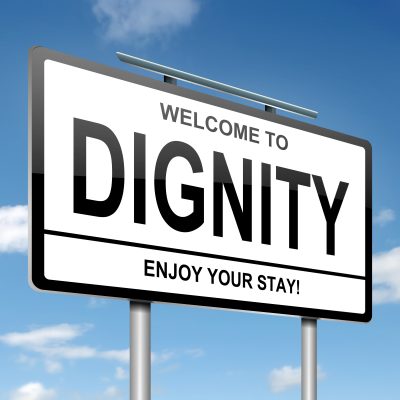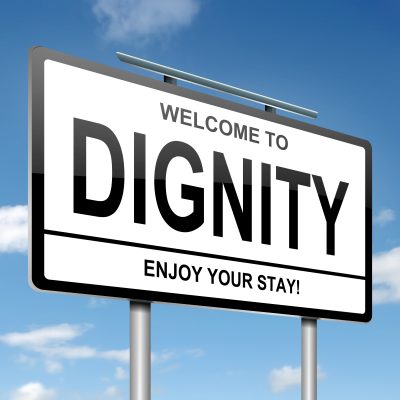Dignity in Elders in Long Term Care: Three Ways to Foster It

 Foster dignity to improve quality of life.
Foster dignity to improve quality of life.
Respecting a sense of dignity in elders living in long term care is vital to their quality of life. Dignity is the state or condition of being worthy of honor or respect, both of oneself and others. An organization called the National Consumer Voice designates October as Resident’s Rights Month to focus on and celebrate awareness of dignity, respect, and the rights of each resident. The 1987 Federal Nursing Home Reform Law requires nursing homes to “promote and protect the rights of each resident” and stresses individual dignity and self-determination.
How can we foster dignity in those we serve? I offer three ways to shape our attitudes and actions.
Focus on the Individual. It is looking past the “story” of the disease or condition. A person’s point of view, physical, emotional, or cognitive state changes many times over a lifetime. However, the individual exists through all these changes. Many think of old people as “former people” but each is still who they have always been. Pay attention to the person inside. I’m saddened when a resident’s room has no personal belongings, as opposed to someone whose room is full of things reflecting what’s important to them. Encouraging individual expression in the resident’s living space helps us to relate to them as a person.
Watch Your Language. Words matter and shape our attitudes, beliefs, and even actions. Some words used in long term care are cringe-worthy. At the top of my list is “lockdown” to describe a secure memory care unit or neighborhood. I’ve heard staff and family members say it. “She needs to be in lockdown.” The definition of lockdown refers to the confinement of prisoners and an emergency measure because of a threat. It’s hardly fitting for people living with cognitive impairment needing a secure, supportive environment! Karen Schoeneman offers suggestions for changing the language of long term care to one that is more respectful.
Convey a Positive Tone of Care. Balancing proficiency in our skills with the human side of care isn’t easy. A study of elders’ perceptions of caring behaviors revealed that technical competency, combined with caring expressions of empathy, most conveyed dignity-conserving caregiving.
With this in mind, I try to act from the belief that our elders deserve to live a life with dignity. Some days, I succeed more than others. What do you think is essential in fostering a sense of dignity in those you serve?
Ann Catlin, OTR, LMT: For twenty years, Ann led in the field of skilled touch in eldercare and hospice. She has nearly forty years’ clinical experience as an occupational and massage therapist. She created Age-u-cate’s Compassionate Touch program and serves as a Master Trainer and training consultant.


